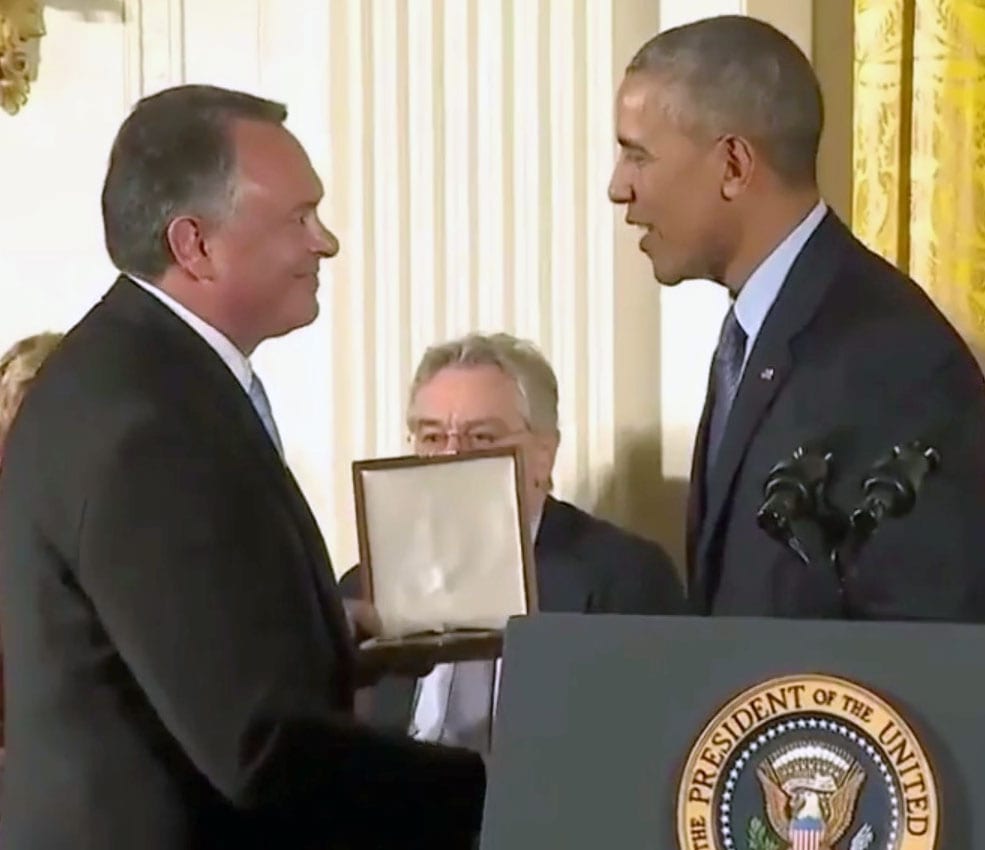President Barack Obama awarded Elouise Cobell, an advocate for Native American financial independence, the Presidential Medal of Freedom posthumously.
Cobell, a Blackfeet tribal leader, led a 15-year legal battle that ended with the federal government’s agreeing to pay $3.4 billion in compensation for mismanagement of Indian trust funds since the late 1800s.
She also was a partner with the Center for Social Development (CSD) in asset building work.
“Never have I known a person more dedicated to a clear and specific cause for social justice, and always with generosity and large spirit,” said CSD Director Michael Sherraden.
About 15 years ago, Sherraden invited Cobell to the Brown School to participate in a debate with Eddie Brown, then director of the Brown School’s Kathryn M. Buder Center for American Indian Studies and former assistant secretary for the Department of Interior and head of the Bureau of Indian Affairs. (Brown gracefully lost the debate, Sherraden says.)
The federal case, Cobell v. Salazar, settled in 2009. The settlement “was far short of the lost value for Native people,” Sherraden said. “But Elouise was tired from the long fight, and she was not altogether well, and she decided that the settlement was the best achievable outcome.”
Cobell, whose Indian name was Yellow Bird Woman, died of cancer in October 2011. She was 65 and lived near Browning, Montana, on the Blackfeet reservation.
“She dedicated her life to the importance of Native people controlling their assets,” Sherraden said.
Cobell helped found the Native American Bank, served as director of the Native American Community Development Corp., the first bank on a reservation, and inspired Native American women to seek leadership roles in their communities, according to a press release from the White House.
During the presentation of the Presidential Medal of Freedom on November 22, President Obama said: “When Elouise Cobell first filed a lawsuit to recover lands and money for her people, she didn’t set out to be a hero. She said, ‘I just wanted…to give justice to people that didn’t have it.’ And her lifelong quest to address the mismanagement of American Indian lands, resources, and trust funds wasn’t about special treatment, but the equal treatment at the heart of the American promise. … Through sheer force of will and a belief that the truth will win out, Elouise Cobell overcame the longest odds, reminding us that fighting for what is right is always worth it.”
Turk Cobell, her son, accepted the medal on her behalf.
